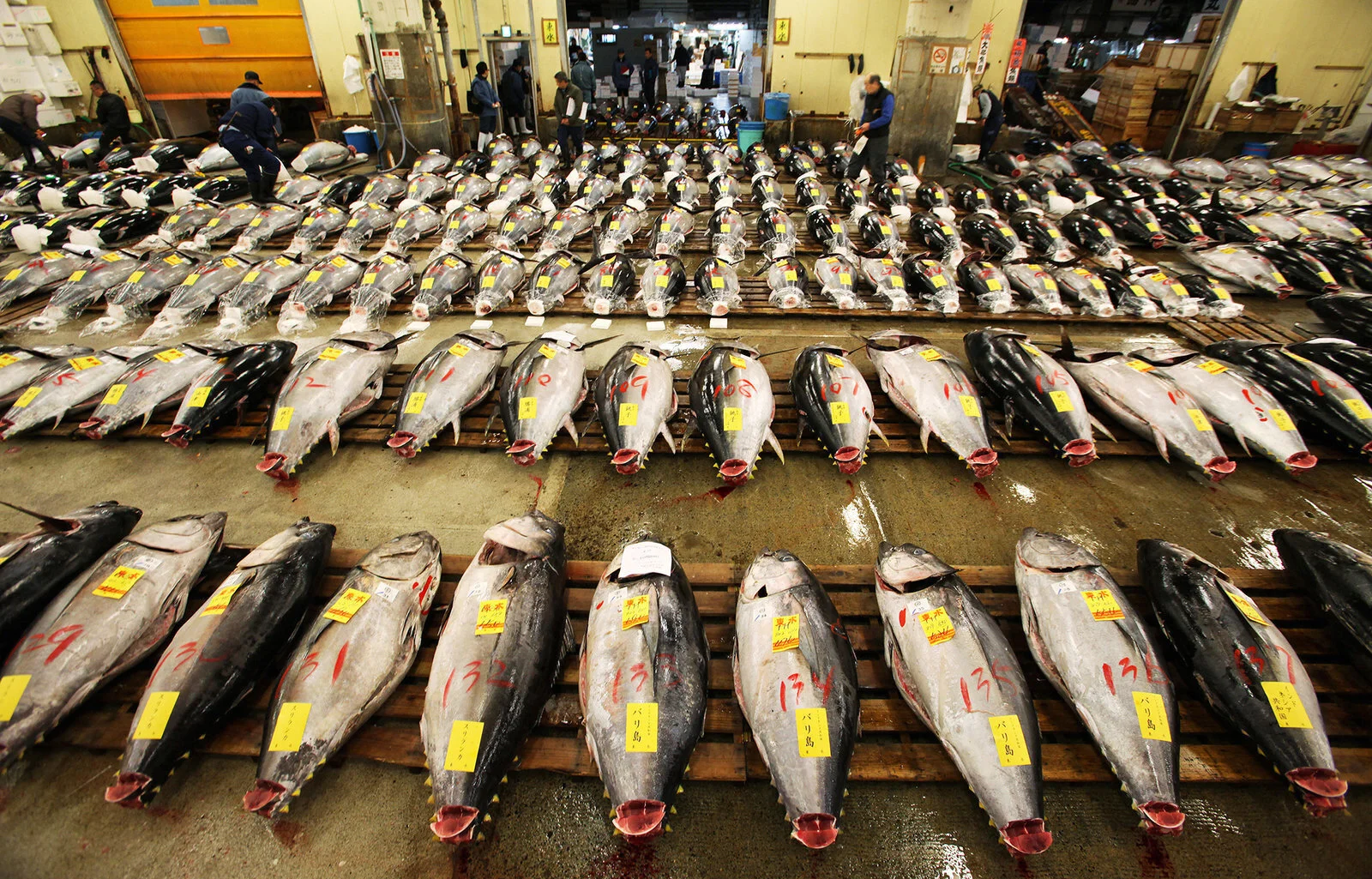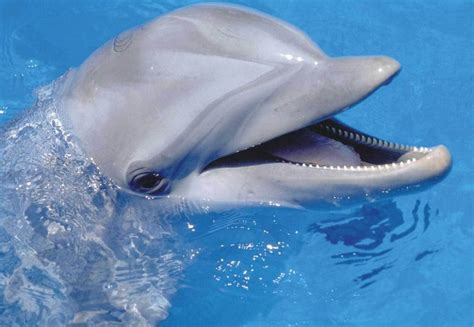The 5 regional tuna fisheries management organizations (RFMOs) that rule the waves. At least they should. (Source Pew Charitible Trusts)
We just celebrated this year’s annual (e-mail) meeting of the international fisheries management organization for the Atlantic ICCAT and its Indian Ocean sister’s IOTC (online) meeting. The Covid-pandemic heavily limited the agenda of both organizations. Only next year ICCAT will take new management decisions on its Eastern Atlantic bluefin stock. But it is necessary to reflect on the ever-growing importance of the Regional Fisheries Management Organizations (RFMOs) that guard our global tuna stocks. The more so, because what will be decided (or not) in these RFMOs will have far reaching consequences for the sustainability of the tuna stocks and the related certification of such sustainable tuna in the coming years.
Let’s start with bluefin tuna. There was quite a bit of disagreement about the first sustainably certified Atlantic bluefin tuna that is now marketed with the Marine Stewardship Council (MSC) certificate. Two leading NGOs in the field, WWF and the Pew Charitable Trusts, have objected to the MSC certification, the most reliable standard of sustainability certifications. According to both, there were too few scientific guarantees that the current fisheries policy would sustain the species sustainably. There were also concerns about the independence of the application of the MSC standard. WWF and Pew were both unsuccessful in their objection procedures: an independent arbitrator decided to admit the Japanese fisheries for MSC certification.
For several reasons this MSC certification of bluefin has attracted a lot of attention. That our sustainable conscience applies so strongly to tuna, and perhaps to all fish, is mainly due to the massive rescue operation that took place at the end of the previous decade to save the bluefin tuna from destruction that took place at the end of the previous decade. It was a kind of tipping point. After all, it looked like we were catching this endangered and most spectacular member of the tuna family up to the point that the last one living in the oceans would end in top quality sushi and sashimi.
The bluefin tuna drama brought together everything that possibly could go wrong in managing sustainability in tuna fisheries
The bluefin tuna drama brought together everything that possibily could go wrong in a global fishery in terms of managing sustainability. The Japanese sushi industry had invested heavily in fishing techniques and fattening farms in the Mediterranean Sea, without much supervision and management. The bluefin tuna nursery rapidly became the scene of boundless greed and massive fraud by corrupt North African dictators, fraudulent tuna farmers in Malta, black traders in Italy, Spain and Croatia and an industrial fishing fleet that did their utmost to sabotage international fisheries policy. ICCAT, where fishing nations and coastal states were supposed to come together to manage Atlantic tuna stocks, was widely regarded as a powerless entity which let things run completely out of hand. It is not without reason that it was nicknamed 'International Conspiracy to Catch All Tuna'.
Fortunately, the massive campaigns to save bluefin tuna worked as a turning point. In unprecedented unity, the pillage of the bluefin has been denounced by nearly all marine environmental organizations involved, sustainable fishermen, scientists, and concerned consumers alike. It was one of the most successful campaigns to save a fish from destruction, bringing together radical liberation actions of illegally caught tuna from the nets by Sea Shepherd, the campaigns of organisations like Greenpeace, WWF and Pew, and a ban in the posh Monaco restaurants by Prince Albert.
It worked. Contrary to the gloomy forecast that the Atlantic bluefin tuna would have disappeared by 2010, the population turned out to recover again. ICCAT policy contributed to this on a number of essential points, such as a ban on fishing for young, not yet mature tuna.
Gradually bluefin tuna disappeared from the campaigns. But what remained was the realization that a sustainable choice of fish and good management can make a real difference.
And now there was this disagreement about the first sustainably certified Atlantic bluefin tuna that came available on the Japanese market. Family-owned Usufuku Honten fisheries has a single longline vessel. With a catch of around 55 tons of Atlantic bluefin tuna in the North Atlantic, it is a small-scale fishery that does not carry much weight. But the MSC certification sets a precedent. Other, bigger bluefin fisheries might become certified too. Just at the end of October SATHOAN, a small-scale artisanal fishery based in the South of France, successfully passed the MSC assessment for sustainable fisheries of Eastern Atlantic bluefin in the Mediterranean. It catches 200 to 300 ton a year for local consumption. This time, the independent assessor included contributions from WWF and Pew Charitable Trusts in its recommendations to improve the bluefin fishery. One can see it as a first step to create a common front to fight a problem that will be key in sustainable tuna fisheries in the coming years.
Whether tuna can keep its sustainability certificate all has to do with the RFMOs
Whether tuna can keep up its sustainability and the related certificate all has to do with the way rhe RFMOs manage our tuna stocks. In the case of the bluefin the uncertainties of ICCAT's scientific forecasts and the fishing quota based on them are being questioned, let alone that any Harvest Control Rules are in place. Current catch policy might cause the population to plummet again in the long run. The persistent fraud with bluefin tuna and the lack of enforcement of the rules is not very sustainable either. In a Europol investigation called 'Operation Tarantelo', millions of euros worth of illegal tuna were seized two years ago and 79 suspects were arrested in Spain, Italy and Malta. An estimated one-fifth of the official catch quotas still disappeared into the black circuit, and so far, very little has been done to prosecute the usual suspects.
MSC argued that certification is the logical consequence of the improvements in fish management that the organization strives for. Where fisheries help to improve the management significantly, there should be a reward. That is right. A fishery that meets sustainable standards must get access to the sustainability certification. There is certainly space for improvement for ICCAT management on bluefin tuna, MSC acknowledges. The certification is therefore conditional: until 2025 there is time to improve the approach. ‘It requires the fishery to work with ICCAT, its member states and other fishing organizations - with support of the Fisheries Agency of Japan - to allow this bluefin tuna stock to recover further’, according to the MSC press release. The success of sustainability depends, once again, on the ability of the ICCAT to improve itself.
The bluefin case shows us the way through the complex maze of international sustainable fisheries governance. But at the end of the line, it is more than ever important for international fishery management organizations such as ICCAT to guarantee the sustainability of the stock in the longer term. If not, you can forget sustainable stocks and the corresponding certification.
And that is the point to make: we all know that potentially devastating situations are lurking in the near future concerning the management rules of many other important tuna resources and the way they are managed in the Indian Ocean, the Western and Central Pacific, the Eastern Pacific and the Atlantic. Many of those tuna fisheries which got the MSC-certificate over the past decade will be at risk losing them due to the lack of effective management policies of the RFMOs.
The situation in the RFMOs puts sustainable tuna fisheries in a pressure cooker
This puts sustainable tuna fisheries and the MSC certification in a pressure cooker. In the case of the yellowfin in the Indian Ocean we are in the middle of a growing boycott by European retailers to avoid sourcing their tuna from the Indian Ocean, because of the failing management of the stocks by the IOTC. Consumers want more sustainable seafood, NGOs defend these interests, retailers and traders want to deliver sustainable sourced products to satisfy the increasing market demand and coastal states with a vested interest in sustainable stocks will deliver sustainable tuna.
It is how the theory of Change should work. The weak point in the chain increasingly seems to be found in the RFMOs. Instead of providing international platforms that defend the sustainability interests of fish-eating, fish-trading and fish-owning nations, RFMOs are instead acting as undecided, consensus-oriented organizations where the supply-driven interests of the major fishery fleets and their powerful lobbies usually prevail.
That may have had its own internal logic when the RFMOs were created under the umbrella of the UN Food and Agriculture Organization (FAO) in the second half of the last century. But the conceptual thinking about whose common interests of sustainability are at stake when it comes to tuna, moved on to ideas that involve a much broader group of stakeholders. And these demand-driven interests are usually at collision course with the supply driven interests of fisheries when it comes to sustainability.
The case of bluefin tuna shows how an organization like MSC and NGOs like Pew and WWF, who all strongly agree on designing robust harvest strategies that will ensure sustainable and efficient management of the fisheries for the future, might even end up in a confrontation, just because of the failing management structure of the RFMO involved. While their joint interest is to enforce the demand driven interests for managing sustainability on a RFMO level.
The table shows the revised deadlines for each ocean and RFMO based on the MSC March derogation. (Source Atuna.com)
Therefore, the challenge is to make RFMOs work. This is not some abstract future objective. Right at this moment there is a list of agreed deadlines for the Harvest Control Rules to be in place in order to maintain the certifications of MSC-approved fisheries and to apply it in the assessments for those fisheries that want to obtain such certification. (See table above) They relate to skipjack, yellowfin, bigeye and albacore tuna in all big RFMOs. Completion dates are in 2021, some in 2023 and 2024. Practically all the important MSC certifications of skipjack and yellowfin, including the PNA in the Western and Central Pacific and the Maldives pole and line, are at risk losing their certificates. Deadlines are extended due to the delay caused by the corona-virus, but that gives only a short respite.
We need to make sustainability work at the RFMO-level. Time is running out.





